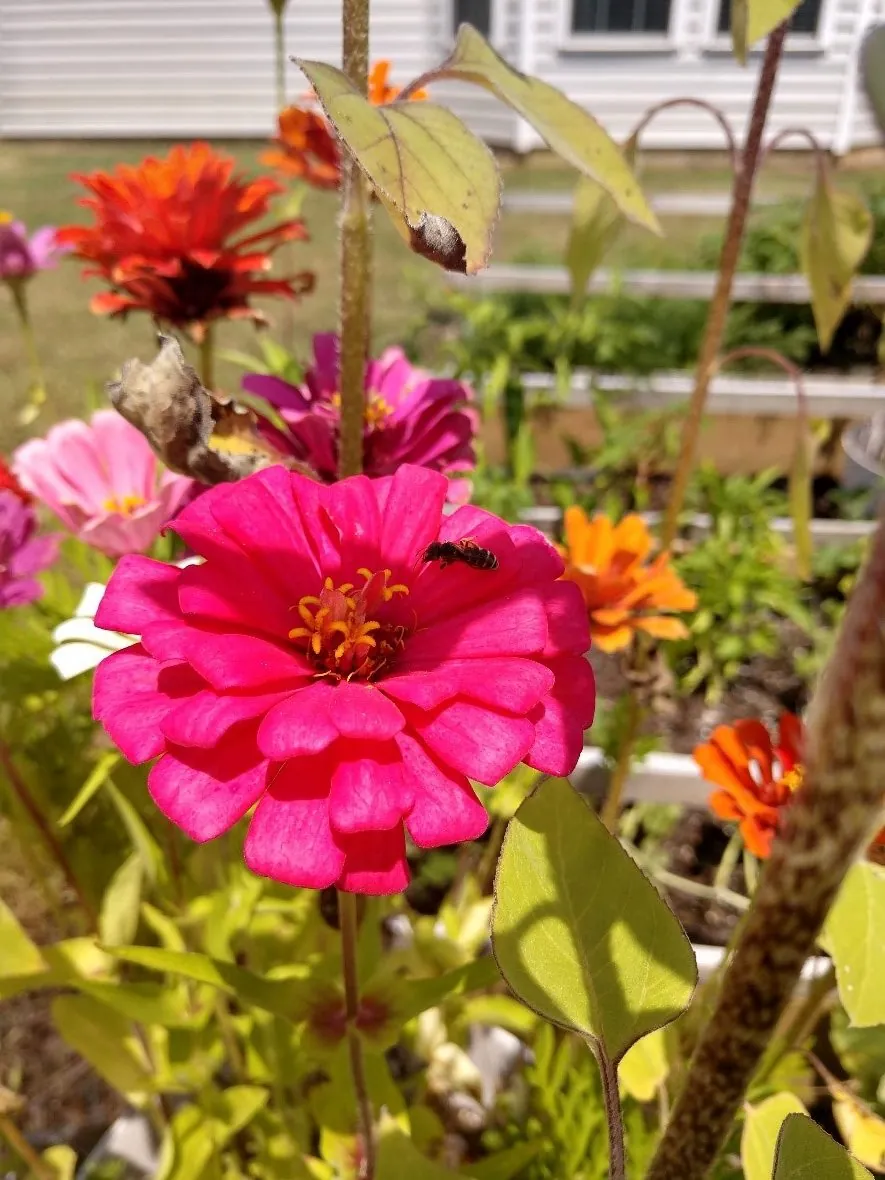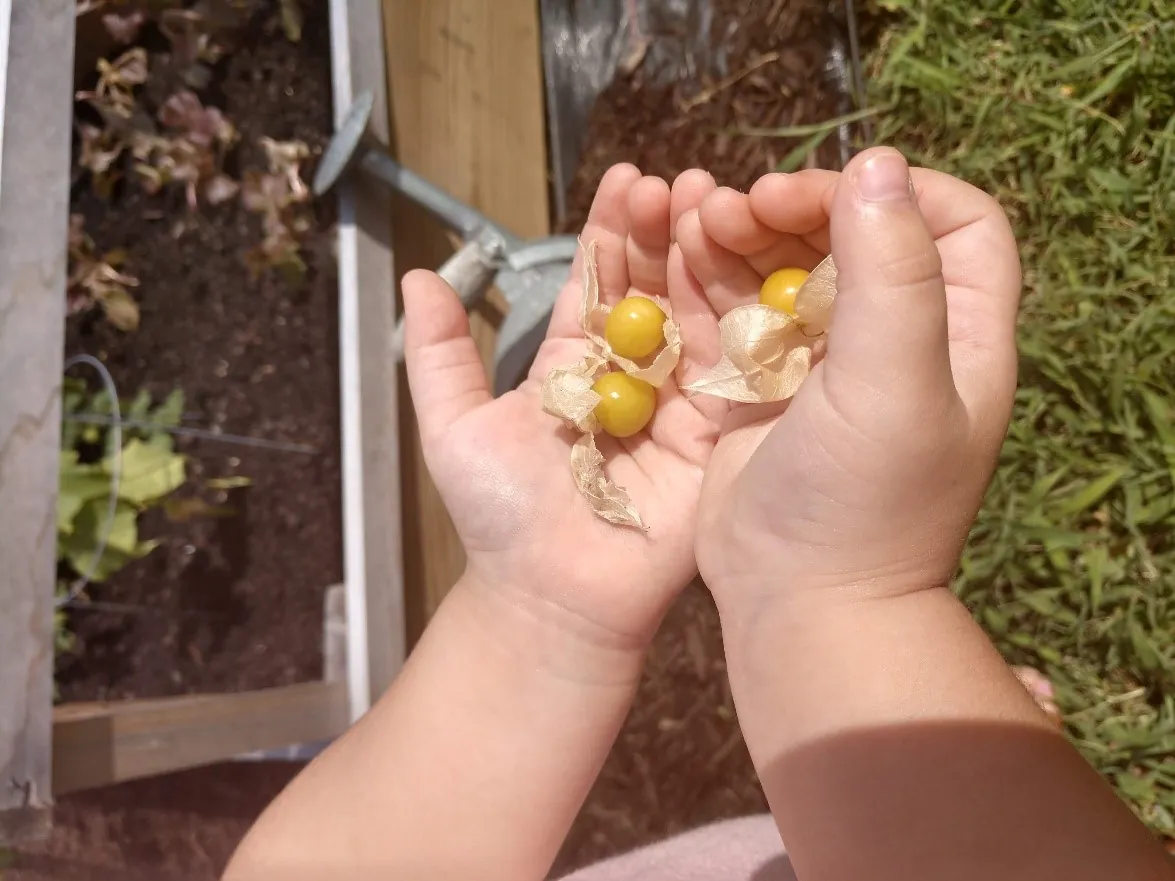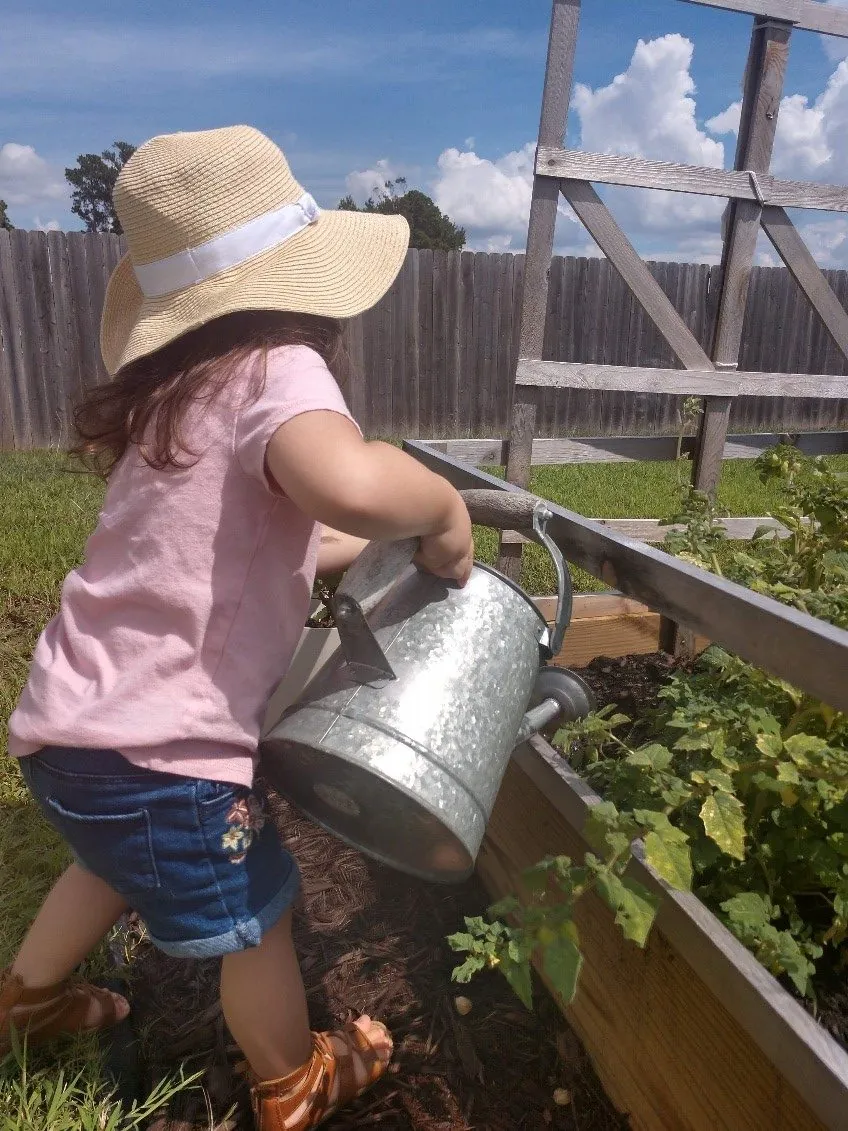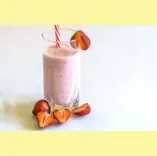Blog
5 things that gardening with a toddler has taught me…
By: Cecelia Wilken, a recent ASU Nutrition Student
Last year I made the executive decision to start a family garden. Initially, I started it for personal and honestly, somewhat selfish reasons. I wanted to get outside more, I wanted our household to be “greener” and reduce our carbon footprint, I wanted to eat more vegetables, I wanted to see butterflies and hummingbirds and I always dreamed of my backyard looking Pinterest perfect. While I had known about the benefits of introducing gardening to children at a young age, I never expected my own 3-year-old to be that interested in it, and it wasn’t something I was planning on forcing on her (as parents, we must pick our battles carefully).
However, much to my delight, my daughter has quite the green thumb and I’ve learned some things during our adventures in the garden together…
- Getting dirty is fun AND healthy!
There have been countless days where my daughter and I come out of the garden covered in mud and compost, with dirt under our nails and smeared on our faces, knees stained green from the grass. Some days my daughter eagerly helps me tend to the plants, carefully patting the earth with her tiny hands, pulling weeds from the ground, other days she makes mud snowmen and paints her clothes with dirt. Balance. Regardless, we both love getting dirty.
Society has taught us that cleanliness is important, and it is, but there are also real benefits to getting dirty! Studies have shown that playing in the dirt is beneficial to both physical and mental health. Certain microbes in the dirt and soil have been shown to improve cognitive functioning, reduce anxiety, lower the risk of allergies, asthma, and help improve immune systems, especially in young children¹.
- Bugs aren’t scary. (At least not all of them.)
Sure, some bugs are scary-looking (and dangerous). I’m personally not a fan of spiders or flying bugs. But my fearless toddler is constantly reminding me that, in her own words, “Bugs aren’t scary Momma, they’re our friends.” In the garden, we see all different types of bugs ranging from ants to caterpillars, to beetles, bumblebees, butterflies, wasps and yes, even spiders. We’ve even been blessed to watch a hummingbird hawk-moth come and take a drink from our flower garden. She’s learned so much about bugs from playing in the garden, how they are important for helping pollinate our flowers, fruits and vegetables and how they help break down the food scraps and plant clippings in the compost bin to help make more food for future crops. Every new bug that visits our garden is welcomed graciously by my daughter (even the caterpillars who destroyed my tomato plant).

Picture Courtesy of Cecelia Wilken
- Go outside. Even if you don’t feel like it.
There are days when I do not feel like doing anything, especially go outside and tend to the garden. However, my daughter holds me accountable for our daily routine. Her enthusiasm and eagerness to go check and water the garden usually motivate me to go outside. She squeals at the sight of new flowers and exclaims excitedly how much “bigger and stronger” the peppers have grown.
Some studies have found that a typical American spends as much as 90% of their time indoors². Those that spend regular time outdoors or participate in outdoor activities have been found to have lower rates of depression and anxiety³. Children are especially sensitive to I’m grateful that my daughter always encourages me to go outside, even if it’s only for a moment. Nine out of ten times, I feel better after spending some time outside.
- Try new things. Even if you’re unsure about it.
One day I will be grateful for my daughter’s confident and stubborn personality, as those are traits that will serve her well later in life. However, they work against me when I’m attempting to get her to eat the peas on her plate. Most toddlers react in disgust when vegetables or anything green is placed on their plate. Unfortunately for me, my strong-willed daughter is no different.

Pineapple tomatillos from the garden – Photo Courtesy of Cecelia Wilken
Imagine my surprise when we were in the garden and one day she took a bite of a tomatillo we just pulled off the vine. Even better yet, SHE LIKED IT! Now whenever we go outside, she walks on over to the vine, picks a tomatillo, and eats it right there in the garden. Since we’ve had the garden she has started trying and eating more fruits and vegetables willingly. She doesn’t always like what we grow, she wasn’t impressed with the cucumber, but she did love the carrots and cantaloupe. Hopefully one day she will start trying new foods beyond what we grow in our garden. Until then, I still call that a win.
- Mother nature is an irreplaceable teacher.
By exploring the garden my daughter has learned many new things. Not only about herself, but also about the world around her. Children learn valuable life skills when exploring their environments like practicing adult roles, gaining confidence and independence as well as developing their creativity and helping grow healthy bodies. Through playing outside in the garden, my daughter has conquered some of her fears, has learned responsibility and developed problem-solving skills. She becomes physically stronger, running around, digging in the earth, using tools and lifting heavy objects.
Our garden has also given my daughter and I another activity to do together and something to bond over. I love watching her explore and learn and she leaves the garden feeling accomplished and important for being able to help.

Photo Courtesy of Cecelia Wilken
While my garden and backyard may not look “Pinterest perfect” it has become something irreplaceable in our lives. My family has gained so much more from our garden beyond just what it brings to our plate. I look forward to our continued adventures in the backyard.
For more information on starting your own family garden check out this article https://fillyourplate.org/ask-a-farmer-questions-moms-ask-arizona-farmers-ranchers-3/ or contact your local nursery for more guidance.
References
¹ Microbes, biodiversity and the benefits of getting dirty. (2015, Jun 02). Fox Creek Times Retrieved from
http://login.ezproxy1.lib.asu.edu/login?url=https://search-proquest com.ezproxy1.lib.asu.edu/docview/1685145539?accountid=4485
² Evans, G.W. & J.M. McCoy. 1998. When buildings don’t work: the role of architecture in human health. J. Environ. Psychol. 18(1): 85–94. doi:10.1006/jevp.1998.0089
³ Soga, M., Gaston, K., & Yamaura, Y. (2017). Gardening is beneficial for health: A meta-analysis. Preventive Medicine Reports, 5, 92-99. doi: 10.1016/j.pmedr.2016.11.007
Ginsburg, K. (2007). The Importance of Play in Promoting Healthy Child Development and Maintaining Strong Parent-Child Bonds. PEDIATRICS, 119(1), 182-191. doi: 10.1542/peds.2006-2697
















